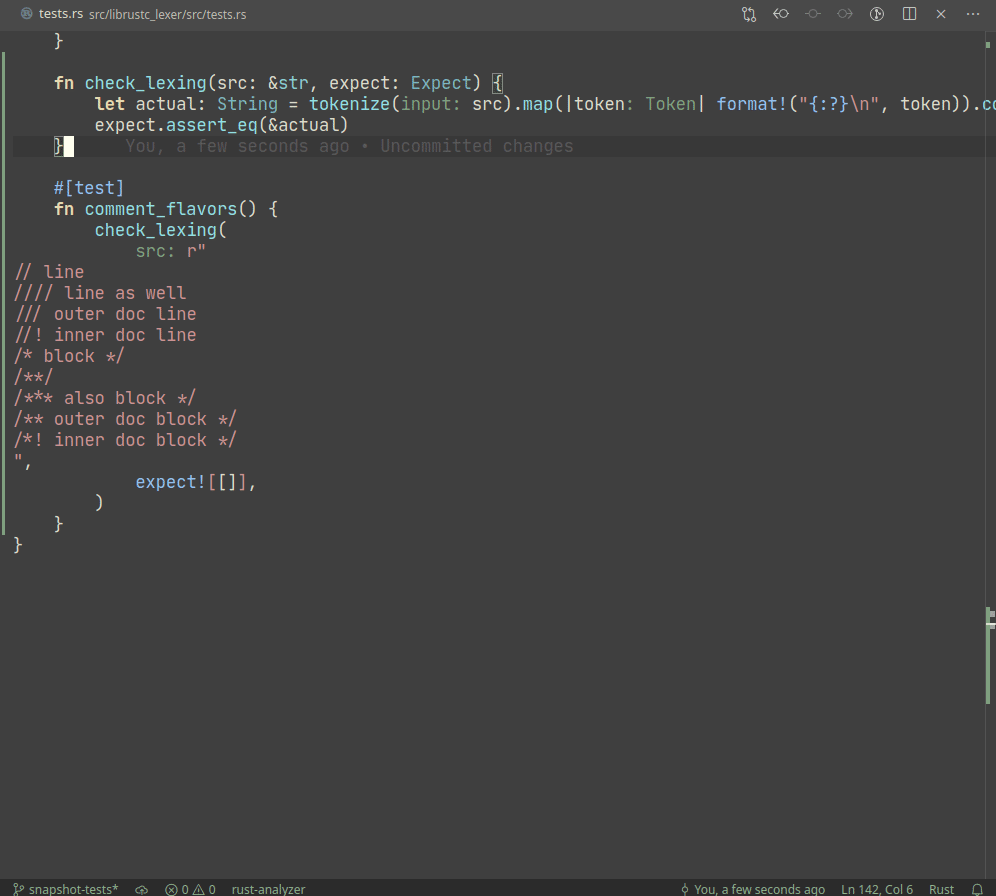Bump LLVM on CI to 10.0.0
This PR bumps the LLVM version we use on our macOS and Windows CI to 10.0.0, fixing a breakage we noticed today:
```
2020-08-25T14:24:28.5939568Z FAILED: lib/Support/CMakeFiles/LLVMSupport.dir/AMDGPUMetadata.cpp.obj
2020-08-25T14:24:28.5940317Z D:\a\rust\rust\build\bootstrap\debug\sccache-plus-cl.exe /nologo -TP -DGTEST_HAS_RTTI=0 -DUNICODE -D_CRT_NONSTDC_NO_DEPRECATE -D_CRT_NONSTDC_NO_WARNINGS -D_CRT_SECURE_NO_DEPRECATE -D_CRT_SECURE_NO_WARNINGS -D_HAS_EXCEPTIONS=0 -D_SCL_SECURE_NO_DEPRECATE -D_SCL_SECURE_NO_WARNINGS -D_UNICODE -D__STDC_CONSTANT_MACROS -D__STDC_FORMAT_MACROS -D__STDC_LIMIT_MACROS -Ilib\Support -ID:\a\rust\rust\src\llvm-project\llvm\lib\Support -Iinclude -ID:\a\rust\rust\src\llvm-project\llvm\include -nologo -MT -Brepro --target=x86_64-pc-windows-msvc /Zc:inline /Zc:strictStrings /Oi /Zc:rvalueCast /Brepro /W4 -Wextra -Wno-unused-parameter -Wwrite-strings -Wcast-qual -Wmissing-field-initializers -Wno-noexcept-type -Wno-comment /Gw /MT /O2 /Ob2 -UNDEBUG -std:c++14 /EHs-c- /GR- /showIncludes /Folib\Support\CMakeFiles\LLVMSupport.dir\AMDGPUMetadata.cpp.obj /Fdlib\Support\CMakeFiles\LLVMSupport.dir\LLVMSupport.pdb -c D:\a\rust\rust\src\llvm-project\llvm\lib\Support\AMDGPUMetadata.cpp
2020-08-25T14:24:28.5940861Z clang-cl: warning: argument unused during compilation: '-Brepro' [-Wunused-command-line-argument]
2020-08-25T14:24:28.5941076Z clang-cl: warning: argument unused during compilation: '-Brepro' [-Wunused-command-line-argument]
2020-08-25T14:24:28.5941321Z In file included from D:\a\rust\rust\src\llvm-project\llvm\lib\Support\AMDGPUMetadata.cpp:15:
2020-08-25T14:24:28.5941545Z In file included from D:\a\rust\rust\src\llvm-project\llvm\include\llvm/ADT/Twine.h:12:
2020-08-25T14:24:28.5941774Z In file included from D:\a\rust\rust\src\llvm-project\llvm\include\llvm/ADT/SmallVector.h:16:
2020-08-25T14:24:28.5942016Z In file included from D:\a\rust\rust\src\llvm-project\llvm\include\llvm/ADT/iterator_range.h:21:
2020-08-25T14:24:28.5942257Z In file included from C:\Program Files (x86)\Microsoft Visual Studio\2019\Enterprise\VC\Tools\MSVC\14.27.29110\include\iterator:9:
2020-08-25T14:24:28.5942542Z C:\Program Files (x86)\Microsoft Visual Studio\2019\Enterprise\VC\Tools\MSVC\14.27.29110\include\yvals_core.h(494,2): error: STL1000: Unexpected compiler version, expected Clang 10.0.0 or newer.
```
I uploaded both the new tarballs to our mirrors bucket.
Originally I tried to do a much broader refactoring that got rid of `init_lints` altogether. My reasoning is that now the lints aren't being run anymore (after https://github.com/rust-lang/rust/pull/73566), there's no need to ignore them explicitly. But it seems there are still some lints that aren't affected by setting `lint_mod` to a no-op:
```
deny(pub_use_of_private_extern_crate)
deny(const_err)
warn(unused_imports)
```
(there are possibly more, these are just the ones that failed in the rustdoc test suite).
Some of these seem like we really should be warning about, but that's a much larger change and I don't propose to make it here. So for the time being, this just adds the `unknown_lints` and `renamed_or_removed_lints` passes to the list of lints rustdoc warns about.
Introduce expect snapshot testing library into rustc
Snapshot testing is a technique for writing maintainable unit tests.
Unlike usual `assert_eq!` tests, snapshot tests allow
to *automatically* upgrade expected values on test failure.
In a sense, snapshot tests are inline-version of our beloved
UI-tests.
Example:

A particular library we use, `expect_test` provides an `expect!`
macro, which creates a sort of self-updating string literal (by using
`file!` macro). Self-update is triggered by setting `UPDATE_EXPECT`
environmental variable (this info is printed during the test failure).
This library was extracted from rust-analyzer, where we use it for
most of our tests.
There are some other, more popular snapshot testing libraries:
* https://github.com/mitsuhiko/insta
* https://github.com/aaronabramov/k9
The main differences of `expect` are:
* first-class snapshot objects (so, tests can be written as functions,
rather than as macros)
* focus on inline-snapshots (but file snapshots are also supported)
* restricted feature set (only `assert_eq` and `assert_debug_eq`)
* no extra runtime (ie, no `cargo insta`)
See rust-analyzer/rust-analyzer#5101 for a
an extended comparison.
It is unclear if this testing style will stick with rustc in the long
run. At the moment, rustc is mainly tested via integrated UI tests.
But in the library-ified world, unit-tests will become somewhat more
important (that's why use use `rustc_lexer` library-ified library as
an example in this PR). Given that the cost of removal shouldn't be
too high, it probably makes sense to just see if this flies!
Call into fastfail on abort in libpanic_abort on Windows x86(_64)
This partially resolves#73215 though this is only for x86 targets. This code is directly lifted from [libstd](13290e83a6/library/std/src/sys/windows/mod.rs (L315)). `__fastfail` is the preferred way to abort a process on Windows as it will hook into debugger toolchains.
Other platforms expose a `_rust_abort` symbol which wraps `std::sys::abort_internal`. This would also work on Windows, but is a slightly largely change as we'd need to make sure that the symbol is properly exposed to the linker. I'm inlining the call to the `__fastfail`, but the indirection through `rust_abort` might be a cleaner approach.
A different instruction must be used on ARM architectures. I'd like to verify this works first before tackling ARM.
The fmt test will cause clippy dev to be compiled and run. The clippy dev
dependencies are currently stored at `target/debug/deps` when this happens.
This location sometimes causes conflicts with ui tests which result in the
build error "thread 'compile_test' panicked at 'Found multiple rlibs for crate
`regex` ...".
This commit forces the clippy_dev dependencies to be stored under
`clippy_dev/target/` which seems to resolve this problem.
hir: consistent use and naming of lang items
This PR adjusts the naming of various lang items so that they are consistent and don't include prefixes containing the target or "LangItem". In addition, lang item variants are no longer exported from the `lang_items` module.
This is certainly subjective and while I think this is an improvement, if many in the team don't then we can just close this.
Fix windows-gnu host cross-compilation
Fixes https://github.com/rust-lang/rust/issues/64218
Also turns out it's faster to run Linux virtual machine on Windows and cross-compile `./x.py dist` than doing it on Windows directly...
I would like to propose these two simple methods for stabilization:
- Knowing that a range is exhaused isn't otherwise trivial
- Clippy would like to suggest them, but had to do extra work to disable that path <https://github.com/rust-lang/rust-clippy/issues/3807> because they're unstable
- These work on `PartialOrd`, consistently with now-stable `contains`, and are thus more general than iterator-based approaches that need `Step`
- They've been unchanged for some time, and have picked up uses in the compiler
- Stabilizing them doesn't block any future iterator-based is_empty plans, as the inherent ones are preferred in name resolution
Minor changes to Ipv4Addr
Minor changes to Ipv4Addr
* Impl IntoInner rather than AsInner for Ipv4Addr
* Add some comments
* Add test to show endiannes of Ipv4Addr display
stable_sort_primitive: print the type that is being sorted in the lint message
changelog: stable_sort_primitive: print the type that is being sorted in the lint message